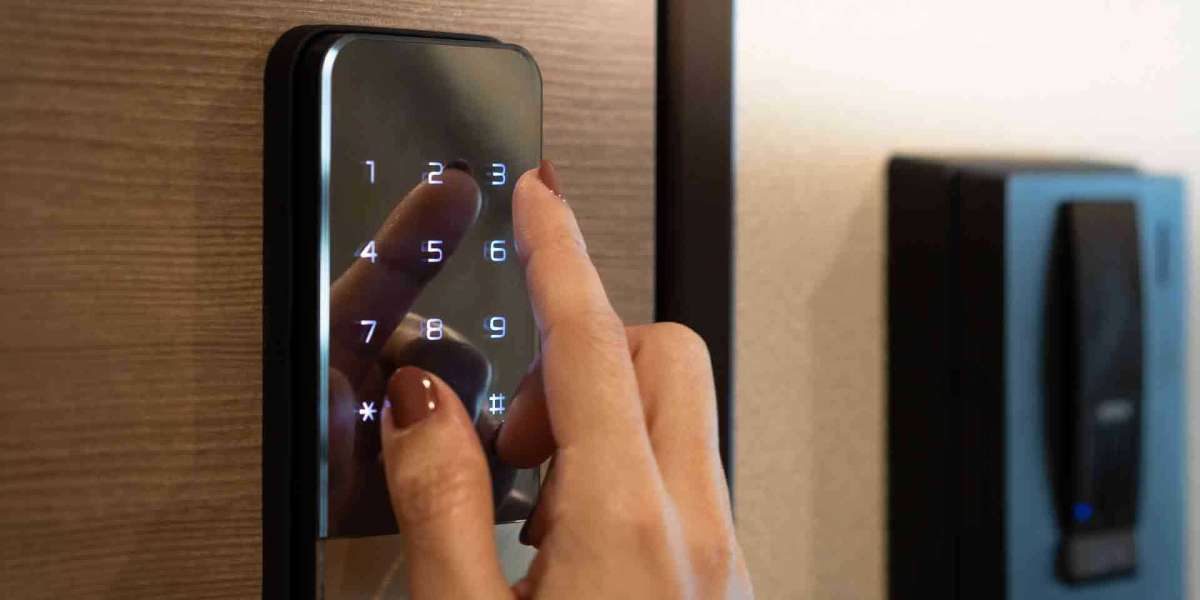In today’s fast-paced world, homeowners seek convenience, security, and technological integration. Smart lock installation has emerged as one of the most significant innovations in home security, bridging traditional locking systems with advanced digital solutions. Unlike conventional locks that rely solely on physical keys, smart locks offer keyless entry, remote access, integration with smart home systems, and enhanced security monitoring.
The adoption of smart locks is not just a trend but a strategic move toward creating safer and smarter homes. With more people relying on digital devices, the demand for secure, connected, and user-friendly security solutions has increased dramatically.
Why Smart Lock Installation is Essential
Traditional locks, while still functional, have several limitations. Keys can be lost, duplicated without consent, or even stolen. Smart locks eliminate these risks by offering digital authentication methods such as:
PIN codes
Biometric access (fingerprints)
Smartphone app controls
Remote unlocking features
By installing a smart lock, homeowners benefit from a higher level of security and flexibility, ensuring they never get locked out of their homes while still maintaining complete control over who enters.
Key Features of Smart Locks
1. Keyless Convenience
The most appealing aspect of smart locks is their ability to eliminate the need for physical keys. Users can unlock doors using mobile apps, voice commands, or biometrics, reducing the risks associated with lost keys.
2. Remote Access and Control
Smart locks allow homeowners to lock or unlock doors from anywhere in the world. For instance, if a family member forgets their key, the homeowner can grant them access via a smartphone app instantly.
3. Real-Time Monitoring
With real-time activity logs, users can monitor who enters and exits their property. This feature is particularly valuable for families, landlords, or those who rent out vacation homes.
4. Enhanced Security Options
Some advanced models include two-factor authentication, combining a PIN code with fingerprint access, making it nearly impossible for intruders to bypass the system.
5. Smart Home Integration
Smart locks integrate seamlessly with other IoT (Internet of Things) devices such as smart doorbells, security cameras, and home automation hubs like Amazon Alexa, Google Home, or Apple HomeKit.
Step-by-Step Guide to Smart Lock Installation
Step 1: Choosing the Right Smart Lock
Before beginning installation, select a lock that fits your door type and security requirements. Options include:
Deadbolt replacement smart locks
Lever-handle smart locks
Retrofit smart locks (installed over existing hardware)
Step 2: Preparing the Door
Check the alignment of the door and frame. A poorly aligned door can affect the smart lock’s performance. Remove the old lock carefully and ensure that the new smart lock hardware fits properly.
Step 3: Installing the Hardware
Most smart locks come with detailed manuals. Generally, the process involves:
Placing the exterior keypad or touchpad.
Fixing the internal mechanism on the inside of the door.
Connecting the battery pack to power the lock.
Step 4: Configuring the Software
Download the manufacturer’s mobile application. Through this app, you can:
Set up user codes
Enable biometric recognition
Adjust remote access settings
Integrate with other smart home devices
Step 5: Testing the Lock
Once installed, test multiple access methods: PIN, fingerprint, and mobile app. Ensure that the lock engages smoothly and that remote access works without interruptions.
Benefits of Professional Smart Lock Installation
While many smart locks are designed for DIY installation, hiring a professional locksmith ensures proper setup, security calibration, and troubleshooting. Benefits include:
Seamless integration with existing security systems
Expert calibration for better door alignment
Assistance with software configuration
Peace of mind knowing the system is secure
Common Mistakes to Avoid During Installation
Improper door alignment leading to locking malfunctions.
Skipping firmware updates, which can leave the lock vulnerable to hacking.
Weak Wi-Fi signals, which may disrupt remote access functions.
Poor password practices, such as using easily guessable PIN codes.
The Future of Home Security with Smart Locks
Smart locks are continually evolving. Future models are expected to incorporate AI-driven recognition systems, enhanced encryption methods, and deeper integration with smart surveillance systems. As technology advances, the goal is to create a completely keyless, highly secure, and fully automated home environment.
Smart Lock Installation for Different Settings
1. Residential Homes
Perfect for families who want keyless entry and child safety monitoring.
2. Rental Properties
Landlords can issue temporary access codes for tenants or maintenance staff, eliminating the need to change locks frequently.
3. Commercial Buildings
Smart locks in office spaces ensure that only authorized employees can access specific areas.
4. Vacation Rentals
Hosts can grant and revoke digital access to guests instantly, reducing the hassle of key exchanges.
Tips for Maintaining Smart Locks
Replace batteries every 6–12 months.
Regularly update the lock’s firmware.
Keep the lock clean and free from dust or debris.
Change access codes periodically to maintain security.
Why Smart Locks Are a Step Toward Smarter Living
Smart locks are not just about convenience but about creating comprehensive home security ecosystems. With features like biometric authentication, remote access, and IoT integration, they serve as a foundation for the future of smart homes.
By investing in smart lock installation, homeowners move closer to achieving a lifestyle that is secure, convenient, and technologically advanced.



